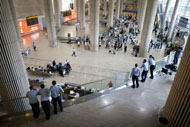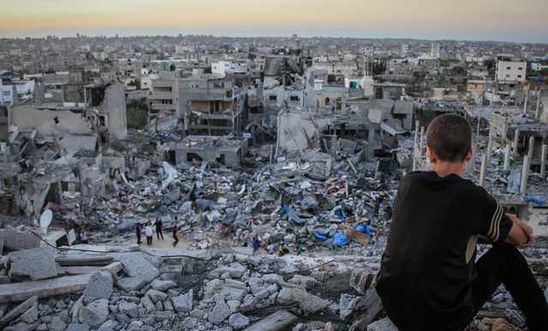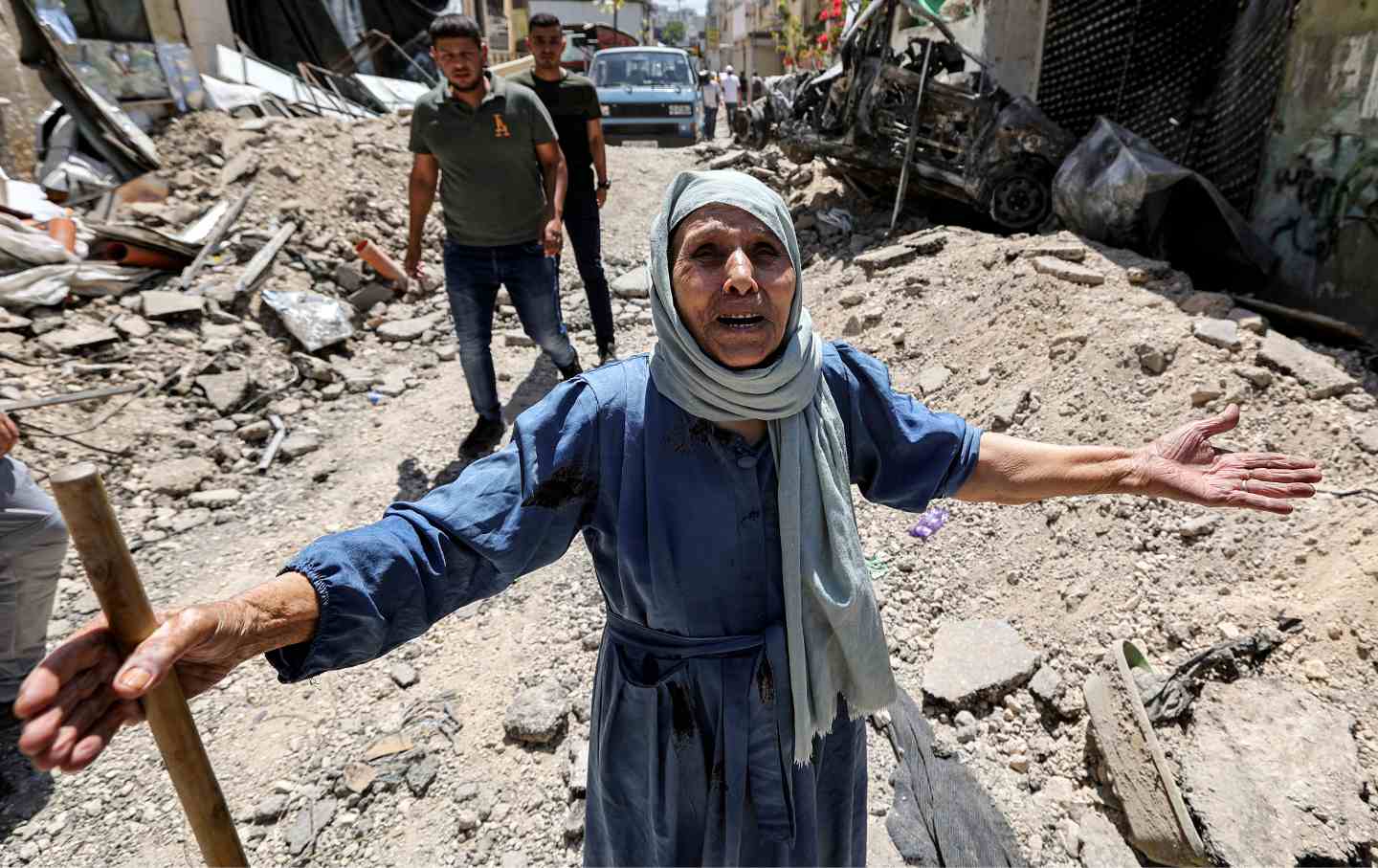
This is the time of year when children and parents alike scramble to try and to get everything in order for the start of the new school year. While children in most other regions of the world are giddy with excitement over the prospect of climbing one more rung of the educational ladder, children in Palestine are burdened with a much heavier load. Not only must they deal with the normal anxieties of all students related to new classes, pressure to get good grades and get accepted into a good university, students in the West Bank and Gaza have to worry about whether they can get to school at all and if, once they are there, will there be teachers waiting for them behind the desks.
Let’s start with the most obvious obstacle of all, namely the nearly 650 kilometer long cement wall that basically encompasses all of the West Bank, severing it, not only from Israeli territories and Jerusalem, but also cutting deep into its territory. It isolates all the major cities from each other and even from their surrounding villages. Where there isn’t an intrusive cement wall slicing one territory from another, there is an electronic fence or at best, an Israeli military checkpoint.
What this means is that students living in any given area of the West Bank must first ensure that their school is in the same vicinity as their home, that there is no checkpoint separating them and that, if there is, they have the documents to prove they are “eligible” to cross it.
Over the past six years of the Intifada, Israeli occupation forces have systematically destroyed large sectors of the Palestinian infrastructure, including the destruction of schools in Israeli air and tank raids and even turning some schools into military camps during Israeli army invasions into Palestinian areas. During a major army incursion into the Balata Refugee Camp in Nablus in February, 2006, Israeli soldiers took over the UNRWA schools in the camp and turned them into temporary military bases. Even if the “occupation” is temporary, the army often ransacks the rooms, breaking desks and chalkboards and looting the grounds.
Still, a more pressing issue this year is the increasingly stringent Israeli travel restrictions being placed on residents of the West Bank. Schoolchildren who live in Jerusalem’s West Bank suburbs and who used to attend school inside Jerusalem’s “declared” borders can no longer do so. Areas such as Dahiet Al Barid and Al Ram and even neighboring villages like Bir Nabala are now completely severed by the Apartheid Wall from Jerusalem. While in past years, students were allowed to cross checkpoints into Jerusalem on the basis of their status as students, this year, parents have been forced to take their children out of their schools and find ones closer and more accessible to home. This means either enrolling their children in schools within the village, or if the family can afford it, finding schools in the Ramallah area. But beware; such an arrangement also does not come without a hitch. Even the 10-minute drive between Ramallah and Bir Nabala is not checkpoint-free even though both are in West Bank areas. Cars and passengers could be held up for hours at the whim of the commanding Israeli officer manning the checkpoint. So, unless a student’s school is within walking distance, there is no guarantee they will even get to school each morning.
As everyone knows, school is not only about the students. The backbone of every educational institution is indisputably the teaching staff. According to statistics provided by the Palestinian Ministry of Education for the scholastic year 2005-2006, there are 48,674 teachers employed in Palestinian Authority-run schools in the West Bank and the Gaza Strip.
While these teachers not only have to face the daily hardships of almost every Palestinian living in the occupied territories in terms of the Kafkaesque Israeli travel restrictions, they are also burdened with a much heavier load – the responsibility of putting food on their tables and ensuring that their own children have a new book bag and a new pair of shoes at the start of the year.
Since the formation of the new Hamas-led Palestinian government six months ago and the ensuing international economic and political embargo enforced on it, PA civil servants have not been paid their due salaries. While the political tug-of-war between the government and the presidency under Mahmoud Abbas has continued throughout these six months, the employee sector has become increasingly impatient with the government’s seemingly nonchalant attitude towards their predicament, even though government officials say they too are suffering the consequences of the economic siege.
Threats of a major civil servant strike have been simmering for months, countered with warnings from the government that anyone who does strike will be held accountable by law. Still, apparently, this was not a strong enough deterrent for the nearly 160,000 civil servants who feel they have no other choice but to take matters into their own hands until their demands are met.
Hence, the start of the school year has already crashed and burned. On the morning of August 28, teachers and staff and all employees in the educational sector were instructed by the Teachers’ Union not to head to their workplaces until their full demands are met.
Striking has always been a legitimate form of protest in any democratic system. For these teachers and all PA employees, who are owed a collective sum of $ 800 million in salaries, it is their right to demand what is lawfully theirs. Whether the government, shackled by an economic siege and challenged by the Fateh-run presidency can find a way out of this labyrinth is yet to be seen.
The events of the coming few days will bring to light a crucial issue. Can the government prove itself worthy of leadership and concretely deal with this pressing issue or will it fold under the pressure, now both internally as well as externally?
For the 1,078,488 students enrolled in government schools, let us all hope the crisis will be handled with care. Not only do the students have a right to education and the teachers have a right to a dignified life, but the Palestinians in general will not benefit in the least from a new eruption of internal political strife should the tension between the government and the presidency spiral out of control.
Joharah Baker is a Writer for the Media and Information Programme at the Palestinian Initiative for the Promotion of Global Dialogue and Democracy (MIFTAH). She could be contacted at mip@miftah.org









